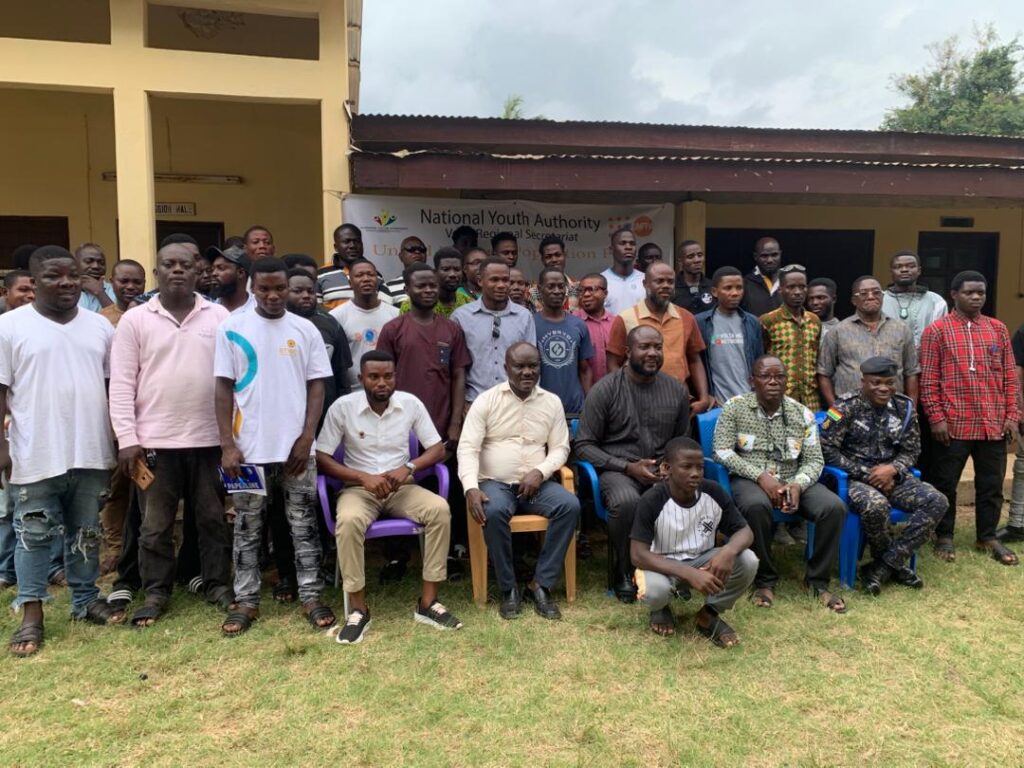A total of 50 commercial motor operators, popularly known as ‘Okada’ riders drawn from Ketu North, Keta, and Anloga have been educated on Sexual and Reproductive Health Rights (SRHR) and Gender-based violence (GBV).
The one-day encounter among other benefits, was to equip participants who were leaders from their respective unions with the required understanding and skills as well as exposing them to the risks associated with early sexual activities in order to position them to behave properly for the growth of their businesses in their respective communities.
In an address during the event held at the St. Theresa RC Assembly hall in Abor within the Keta Municipality on Friday, July 25, Mr Yao Semorde, the Volta Regional Director of the National Youth Authority (NYA), said the event remained an essential aspect in their programme of activities due to the increasing cases of alleged sexual activities of ‘Okada’ riders with teenagers, which eventually lead to teenage pregnancy.
He indicated that several teenage pregnancy cases were attributed to Okada riders in the region, and that there was a need to proffer alternative measures to reverse the canker, hence the need for public awareness and education to enable them to transfer the acquired knowledge to non-participants of the workshop.
He revealed that their outfit had recently engaged Akatsi North district, Central Tongu, and the Adaklu districts in similar training, with funding from the United Nations Population Fund (UNFPA).
He commended the UNFPA for its continuous support in fighting the menace.

Mr Wisdom Bondieu Seade, the Municipal Chief Executive for Keta who witnessed the event, urged all riders to shun away from a feeling of inferiority complex, stating that “Motor riding business is not meant for illiterates and those regarded as vulnerable in society.”
He tasked all riders to dress neatly by embracing all other protective kits as well as complying with the stated road regulations.
Mr Seade further encouraged the riders to do their work with optimum trust and high integrity without any level of suspicion since the government was working assiduously to legalise their operations.
On sex education, he appealed to participants to disengage luring girls, especially teenagers by offering them free services.
“We have to talk to you so you can behave well, how to talk to customers, how to avoid getting too attracted to women customers, and the abstinence from drug abuse.”
Mr Seade also commended the Volta Regional Secretariat of the NYA for collaborating with the UNFPA to embark on what he called ‘an all-important activity.’
Mr Stanley Saho, a nurse from the Keta Municipal Health Directorate, took participants through the relevance of Sexual and Reproductive Health (SRH) and its accompanying rights that must be adhered to.
Some objectives, he said, were to integrate SRH discussions into weekly riders’ union meetings, training of selected riders as peer educators, distributing SRH messages on rider vests and helmets, and partnering with health workers for outreach at rider parks.
Mr Saho also called for the use of audio messages, awareness on WhatsApp platforms to promote the positive campaign as well as the need for behavioral changes on the part of riders.
Assistant Superintendent of Police, ASP Agbota Agbodzi from the Abor Police Command, took participants through the various forms and impact of GBV.
Key cases such as sexual violence, physical assault, verbal abuse, psychological violence, rape, and sexual assault, among others, were discussed, where he urged members in society to avoid them.
ASP Agbodzi stated that the impact of GBV could result in physical harm, emotional trauma, and others by referring to the Criminal Code 1960 (Act 29), which constitutes a threat or harm to a person under that act.
It was on the theme: “Okada Ride: Defending Sexual and Reproductive Health Rights of the Youth”, and was implemented by the Volta Regional Coordinating Council.
Some participants, the Ghana News Agency engaged, expressed appreciation to the organisers for the training.
They appealed for more opportunities to enable them to have exposure to the key topics under discussion.
